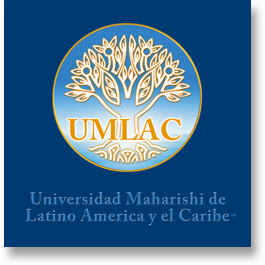MBA Admission Requirements
General Academic Requirements
Applicants must have a four-year undergraduate degree or the equivalent. Acceptance is based upon the quality of undergraduate performance, aptitude test scores, work experience and other achievements.
Before enrolling for the first semester of the MBA, students should be familiar with principles of economics, from a prior college course or from reading a Principles of Economics textbook. Knowledge of college algebra is strongly recommended for acceptance into the program. Students who do not have the prerequisite knowledge of mathematics will be required to take MGT 417 Mathematics for Business in a summer session prior to their first semester or as an elective course.
GMAT and GPA
- The Graduate Management Admission Test (GMAT) or Graduate Record Examination (GRE) is recommended but not required.
- The preferred standard for admission is a four-year bachelor’s degree with a cumulative GPA of 3.0 or higher.
- To qualify for graduate admission at UMLAC an undergraduate GPA of 3.0 is generally required.
- A GPA of just below 3.0 could be accepted in certain cases.
- A GPA greater or equal to 2.8 can be accepted if applicant is otherwise academically strong, else the applicant is required to take GMAT.
- A GPA greater than 2.6 can be accepted if the applicant submits strong GMAT scores.
- A GPA greater than 2.5 can be conditionally accepted if the applicant submits strong GMAT scores and takes 3 courses at UMLAC obtaining a B or higher for each course.
- Please note that academic ability is a vital aspect of a student’s application. However, other factors, like recommendations and the desire to participate in Consciousness-Based Education, also play an important part in the process of accepting an application.
1-year , full-time MBA, if you have a business major
If you have an undergraduate degree with a major in business and a GPA of 2.8 or higher, you may receive waiver credit for undergraduate business courses in any of the eight MBA Foundation areas in which you received a grade of B or higher: Marketing, Accounting, Financial Management, Business Law and Ethics, Operations/Quality Management, Human Resource Management, MIS, and Sustainable Business.
Maximum 18 credits may be waived.
Students who waive the full MBA Foundation and who take classes on campus in the daytime schedule could earn their MBA in as little as one year.
The Transcendental Meditation Technique
The MBA program includes the daily practice of the Transcendental Meditation® technique as described on this website. Please make sure you are comfortable with this aspect of the program and intend to participate in it as with any other course required for the degree.
Information for International Students
The following sections pertain to international students
- All international students must submit official English proficiency test scores (either TOEFL or IELTS) as part of their application.
- Students who are from Canada, the U.K., Australia or New Zealand are exempt from this requirement.
- The test must have been taken within the last two years.
- Students with scores below 6.5 on IELTS, 575 TOEFL paper-based, 232 TOEFL computer-based, or 90 TOEFL internet-based will be asked to take Intensive English classes before enrolling in degree program classes. Find out more about the TOEFL.
The time spent in Intensive English classes will vary depending on the student’s level of English when they arrive, as well as their motivation and natural ability to acquire a new language.
- Students at a higher level of English upon arrival may need to take only a semester of Intensive English.
- Students beginning at a lower level of English should expect to spend 2 or 3 semesters developing their English proficiency to the level required for successful academic study.
International equivalents
Our admissions counselors are familiar with the interpretation of transcripts based on grading systems from most nations. We will evaluate your marks and notify you if you qualify, and if you are required to take the GMAT.
Please note the following points:
- At least 16 years of education are required (15 years may be considered at the discretion of the University).
- Bachelor’s degree must be a 4-year degree (a 3-year degree may be considered at the discretion of UMLAC, particularly when the applicant has additional training or extensive work experience).
- Undergraduate Cumulative Grade Point Average (GPA) of 3.00 must be equivalent to “B” average in letter grade or higher, based on the USA grading system.
UMLAC’s MBA Degree
- Introduction
- MBA Admissions Requirements
- MBA Degree Requirements
- MBA Sustainable Business Specialization
UMLAC’s School of Business General Goals
The specific facts and theories about business will change over time, but several personal qualities that develop through Consciousness-BasedSM management will form the basis for our students’ success throughout their careers.
A Unique Perspective of Business
The unique perspective on business at UMLAC is perhaps best illustrated by comparing some “conventional principles” of business, which kept life rooted in ignorance in ages past, with “consciousnessbased” principles that are emerging in an age where the current knowledge-based paradigm of business would find its fulfillment in Consciousness-Based Management.
